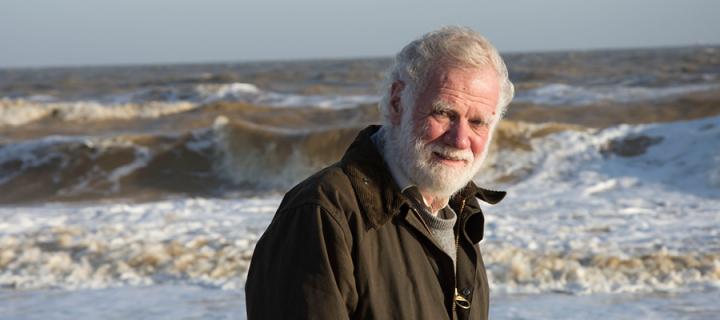Malcolm Blackie
Professor Malcolm Blackie’s long career in African agricultural development and education has benefited many people, from former students now in influential positions to smallholder farmers.
| Name |
Malcolm Blackie |
| Degree |
BSc in Agriculture |
| Year of Graduation | 1967 |
Your time at the University

I was born and brought up in Zimbabwe. My father, an orphan, was an Edinburgh graduate in medicine having won a scholarship from Duns High School. I visited the city the first time when I was 14 and loved the place.
I wanted to study agriculture and the Edinburgh degree offered excellent tuition, combined with lots of opportunities to get ‘hands on’ experience. I had a year on a farm before I was allowed to enter which taught me the hard work of farming (as well as learning how to understand Scots!).
One unanticipated but significant benefit was I worked and played alongside black Africans, something I would never have experienced at a South African university (the other alternative I could have chosen). They were smart, friendly, and for the first time I learned to make friends with people of another culture.
My year group was small but all good friends. We met up for our 50th reunion in 2018 in Peebles which was enjoyed by all. I used to work on farms during the holidays to pay my way (Prime Minister Ian Smith made a Unilateral Declaration of Independence while I was studying and funds from Rhodesia were blocked), and especially enjoyed the lambing season.
My major dislike was the long dark nights in the winter.
Our focus was on improving food security and incomes of smallholders, particularly by improving the productivity and profitability of the main crops grown by those farmers. This, we felt, was an essential first step to sustainability.
Your experiences since leaving the University
I worked as government officer determining land quality in unsettled land, then did an MS in the US, a PhD at Nottingham and worked at universities in New Zealand, and Western Samoa.
I returned to Zimbabwe after independence to set up a faculty of agriculture at the University of Zimbabwe. Jim Harkins, who taught farm management to us at Edinburgh, was invited to join a small group of three professionals to advise me on creating the new faculty. The outcome was we got exactly the buildings, laboratories, and resources we needed. In addition, we were able to buy a farm for the faculty just outside the Harare city boundary so students could get the same practical experience that I had had at Edinburgh. I also started a small postgraduate school to develop the outreach capacity of the faculty. What I enjoy most now is travelling in Africa and meeting my old students in influential positions across the continent.
Having set up the faculty and got it running, it was time for me to move on. I joined Rockefeller Foundation and set up their agriculture programme in southern Africa. This enabled me to move out from administration at the university to working directly with smallholder farmers in the region. Our focus was on improving food security and incomes of smallholders, particularly by improving the productivity and profitability of the main crops grown by those farmers. This, we felt, was an essential first step to sustainability.
We worked closely with other major agricultural programmes – often they provided infrastructure and we provided support to local professionals to develop in-house capacity. The Malawi Starter Pack programme, which gave that country its first food surplus in 30 years, and a university development programme which gave African students the opportunity to study for high quality higher degrees in Africa were the high points of our work. This last programme has now been fully taken over by the African universities as the Regional University Forum for Agricultural Development (RUFORUM). An unexpected outcome has been a marked increase in female enrolment in advanced degrees as we found young women often reluctant to study overseas; local university enrolment was an attractive option. I was asked to join the International Advisory Panel of RUFORUM when the programme was first established, stepping down last year. The panel provides external oversight to all existing and proposed activities of the programme.
Sadly I was forced to take retirement after a brain tumour operation but I remain active in agricultural development in Africa. As book review editor for a major international journal, I have plenty of opportunity to keep up with developments. I remain active with a smallholding of my own (goats, sheep, vegetables, and fruit) outside Norwich, as well as a modest furniture renovation business.
Alumni wisdom
The hands on experience I obtained with my degree has proved invaluable in adjusting to change as I have gone through my career. Include within that experience, the learning of another language.
Language opens windows into other cultures better than any other skill and, once you have mastered one, many people find learning additional languages relatively easy. If you know how to do things yourself (rather than tell other people how you think they should be done), you will find rewarding and enjoyable employment.
Related links
RUFORUM (external link)
Rockefeller Foundation (external link)
Last updated October 2018.

